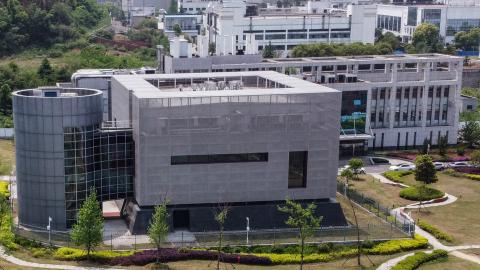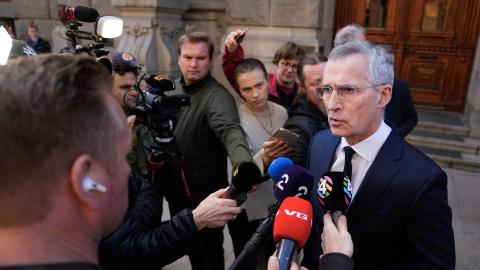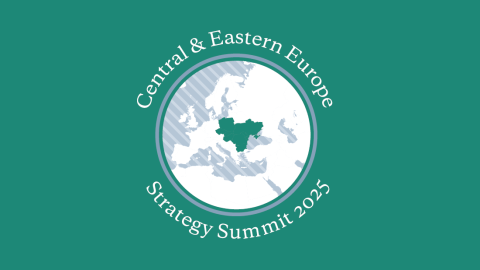Consider these two quotations, both of which are provided by members of the Egyptian intelligentsia: “The Holocaust is a lie,” and “The victory of the Zionist ideal is also the victory of my ideal.”
As some readers will recognize, the first quotation comes from Ahmed Ezz el-Arab, vice chairman of Egypt’s flagship Liberal party, the Wafd, who just last week denied that the Nazis killed 6 million Jews during World War II. “The Holocaust is a lie,” he told the Washington Times. “The Jews under German occupation were 2.4 million. So if they were all exterminated, where does the remaining 3.6 million come from?” The second statement was made in the early 1920s by Ahmed Zaki, a leading intellectual.
To most readers these two statements must seem quite astonishing, each in their own way, of course. And yet they both reflect their respective contexts and indicate the huge gulf between the intellectual, political, and moral climate of early twentieth century Egypt and the present—and perhaps offer us a clue as to what happened during the intervening years.
Today, anti-Semitism is a disease shared by many across Egypt’s political spectrum, so it is hardly surprising that they are also anti-Zionist. This was not always the case. In the early part of the last century, Zionism won sympathy and support from many Egyptian intellectuals and politicians. For instance, an Egyptian newspaper in 1917, Al Lataif Al Musawara, described Jewish officers who died during Allenby’s campaign in Palestine as “falling in the battle in a land that is the homeland of their ancestors and one in which the children of Israel have always fought their enemies and the invaders of their land.”
That Jews had an indisputable unbroken connection to that homeland, many Egyptians at the time believed. So was the idea of rebuilding that homeland. In what today would seem like a fantasy tale, there was even an Egyptian Zionist organization, which operated legally until it was banned the day King Farouk entered the 1948 war. The organization’s secretary general was Leon Castro, who was at the same time a private secretary of Saad Zaghloul, the outspoken nationalist figure who founded the Wafd.
The party today is very different from the one founded by Zaghloul, and Ezz el-Arab, alas, is representative not only of today’s Wafd, but also of Egypt’s “liberal” parties in general. Unable to provide any coherent ideas or programs that can compete with the authoritarian state or the Islamist vision for Egypt, the liberals are given over to populism—precisely the sort of sensationalist and empty rhetoric in which Ezz el-Arab specializes. His columns in the Wafd’s newspaper have been filled for years with the same kind of conspiracy theories that he related last week to the U.S. press. Indeed, perhaps Ezz el-Arab merits some respect for exposing his beliefs to an English-speaking audience as well as to his Arabic one. Most so-called Arab liberals, after all, have two different messages, one delivered to their Egyptian constituencies and another, usually more “tolerant” discourse, reserved for their colleagues in the Western press and academia.
Even when statements like Ezz el-Arab’s are heard in the West, the typical reaction of policymakers, journalists, and intellectuals is to ignore or excuse them. These are liberals, or secularists, moderates or democrats, the Westerners insist, despite everything their Arab interlocutors say or do. The realist observer will inform you that these are the kind of “liberals” in the region and that you have to deal with them. As a result the West shuts its eyes, ignoring the reality and the consequences.
The question, then, is not, how could an Egyptian “liberal” partake in a round of Holocaust revisionism? Rather, it is whether Ahmed Ezz el-Arab and others like him are in fact really liberals. That is, is it possible to be a genuine liberal and an anti-Semite at the same time? Of course not. Egyptian anti-Semitism is the starting point of a political ideology that has dominated the region for more than 60 years and shaped how politics are conducted. Jew hatred and the accompanying conspiracy theories serve as a way of explaining the world that not only builds up hatred, but also crushes any serious attempt at examining the region’s true ills. Until Arab officials, journalists, and academics—encouraged by their Western counterparts—start to reconsider not only the roots of their anti-Semitic discourse but also its ugly fruit, there’s little chance of liberalism carrying the day in the region. After all, liberalism needs real liberals.

















